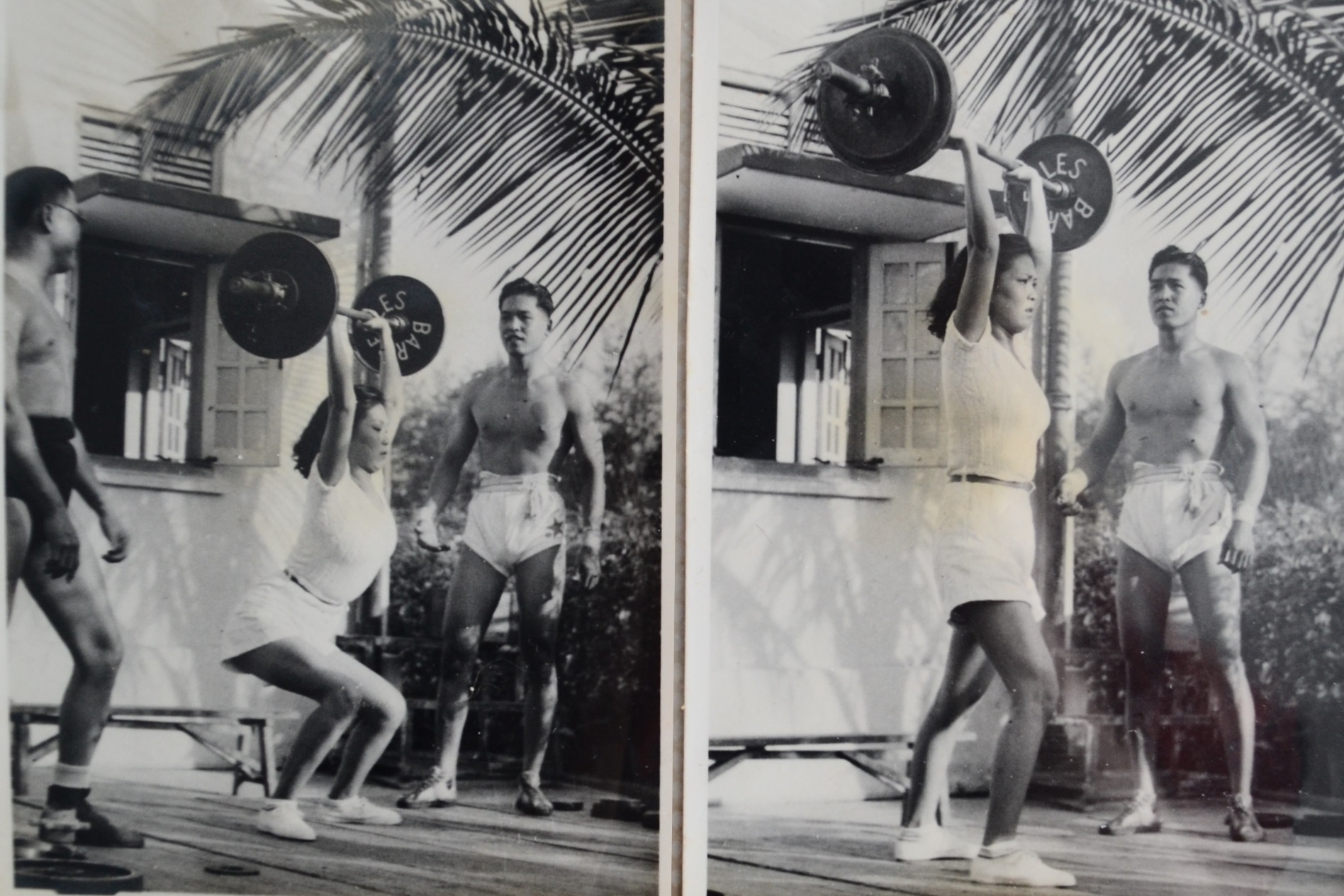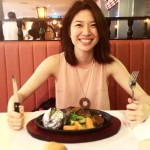I sat Madam Ho Lye Toh down one hot afternoon with a recorder in one hand and notebook in the other, excited to talk about her experience and memories – I had found out earlier that Mdm Ho (henceforth referred to as Tai Ma, which means ‘paternal great-grandmother’ in Cantonese dialect) had earned the title of Miss Singapore three times in her teenage years. Although I was apathetic in keeping up with such pageants, I knew that winning three times, along with a history of weight lifting, was something else. We started from the beginning.
It was 1941, August 8. Tai Ma followed her father to perform at a weight lifting demonstration at Lady McElwaine’s Fair, the wife of then-Chief Justice Sir Percy McElwaine.
“There were a lot of things going on. Dancing in the hall, boxing somewhere…we did the weight-lifting in the garden. You could buy tickets to see whatever you wanted. I don’t know how much it was…maybe five dollars a ticket?”
Tai Ma’s father, Mr Ho Peng Khoen, a former Malayan Weight Lifting Champion who frequently did public weight lifting demonstrations, had signed up his unknowing daughter and niece for the Miss Singapore contest under the guise of the weight lifting demonstration.
“After the demonstration my father told me to change, and I asked, ‘Change into what?’ He had bought me a cheongsam to wear for the pageant!”
Tai Ma let out a number of good-hearted chuckles. Though just a few months shy of turning 92, she is infectiously young at heart. I asked her about her first pageant experience.
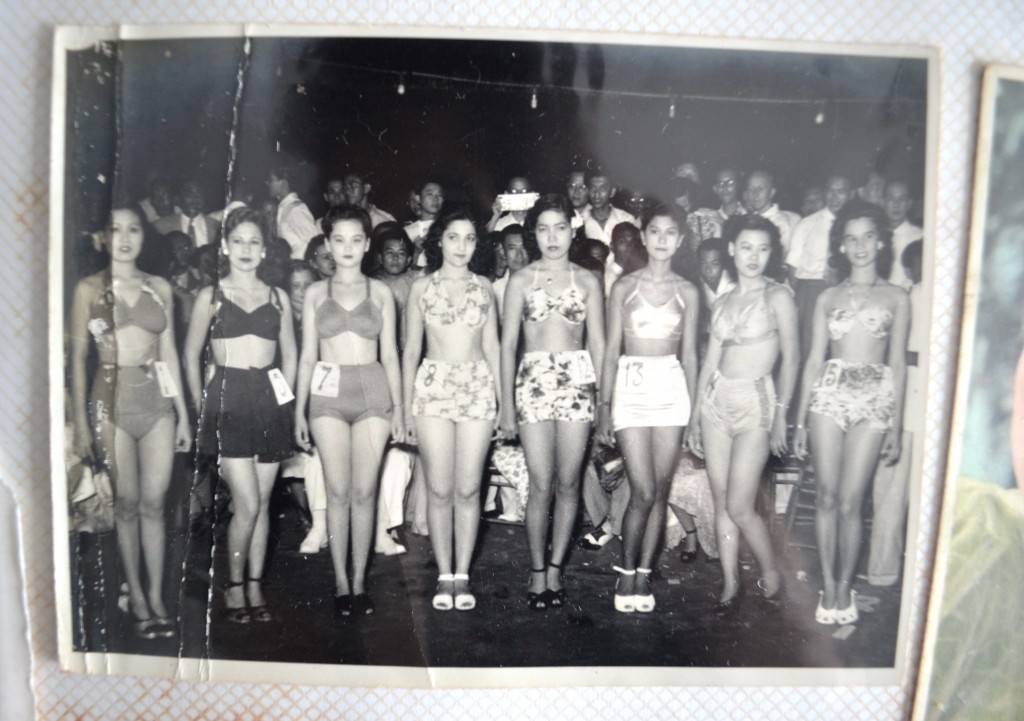
“There were 16 of us, majority were Europeans. My cousin and I were the only ones who were Chinese. I was so tired that night because the competition stretched till 12am, past my 9pm bedtime. But my father was adamant about waiting to hear the results so I napped in the car.”
The winner was Tai Ma, who was chosen based on popular vote. I asked if it was a life-changing experience, apart from the numerous photographers coming round her home to take her picture for the papers.
“Nothing (changed)! I was only given the Miss Singapore sash and a large, white snakeskin bag. It was so big and I didn’t want to hold it.”
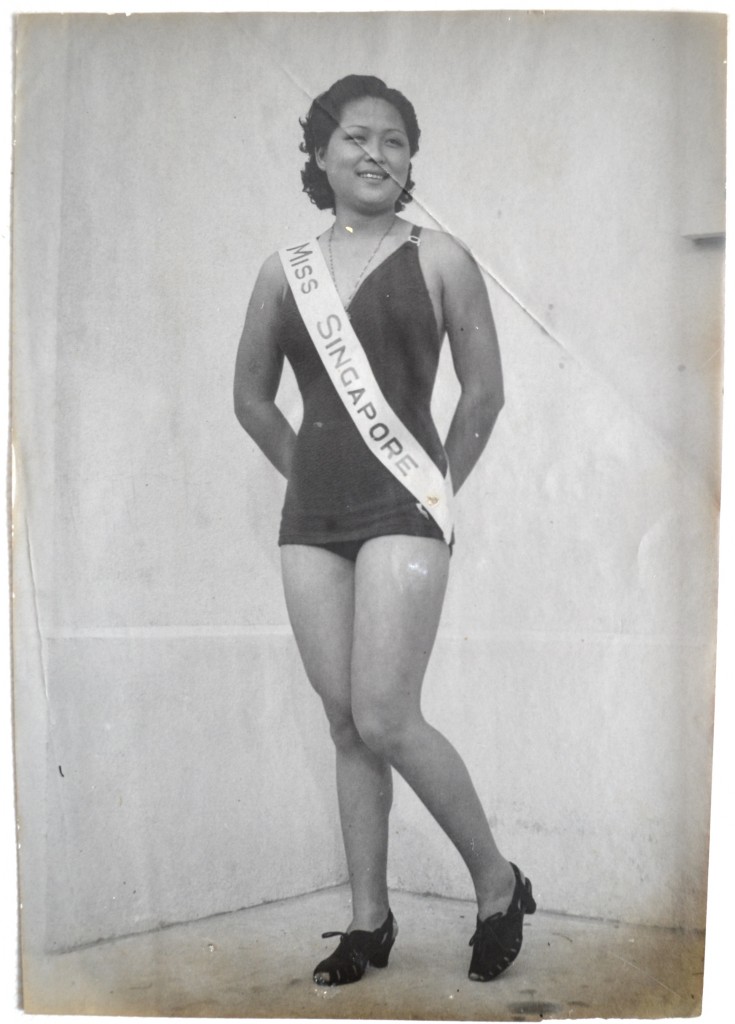
How about the second and third Miss Singapore titles that she also won, that took place in 1946 and 1947 respectively? Surely things got better and the prizes were more competitive? Like maybe an expensive tiara to keep? Tai Ma shook her head and claimed the prizes were worse. I found that hard to believe but that only spurred her on to convince me.
“It was just a (winner’s) cup and a box of cosmetics!”
She proceeded to tell me about her sisters who went on to join other beauty pageants and won cash prizes and trips to Hong Kong (her second sister was Miss Singapore 1948 and her third sister won other titles: Miss Chinese Swimming Club, Miss Beach Queen, Miss Selangor).
“I was only Miss Singapore – nothing la.”
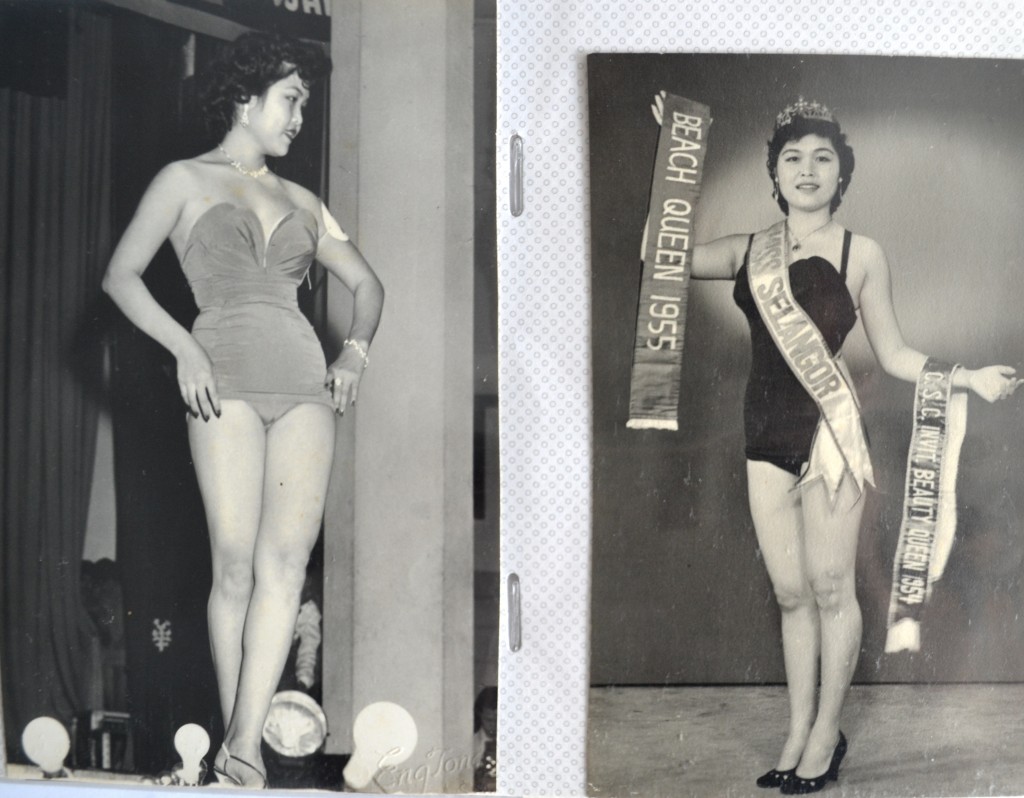
Unfortunately the only pageant prize she valued, the Miss Singapore sash, was burned by her mother out of fear during the Japanese occupation. Tai Ma is upset as she recounts the incident to me, but is resigned to the fact that it is lost forever: “What to do? It’s been burned already. I only have the photo of me in the sash now.”
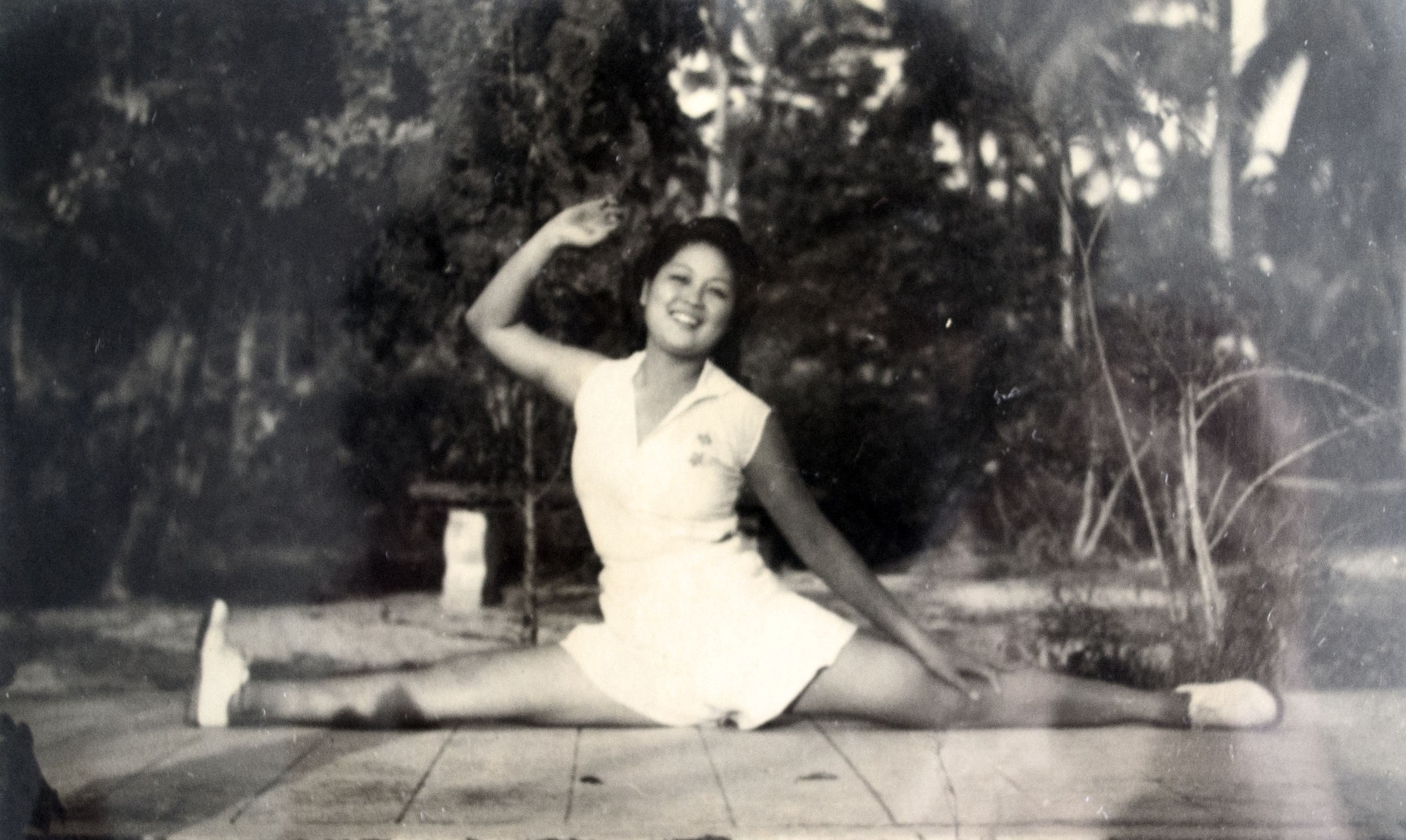
In an attempt to lighten the mood, I decided to focus on her growing up years. Tai Ma grew up in a time where parents raised their children with a strict hand and she knew better than to talk back, but her father doted on his children immensely, especially his daughters. This was especially apparent by the way he sought to include them in every aspect of his life and hobbies, teaching each one weight lifting and yoga at home.
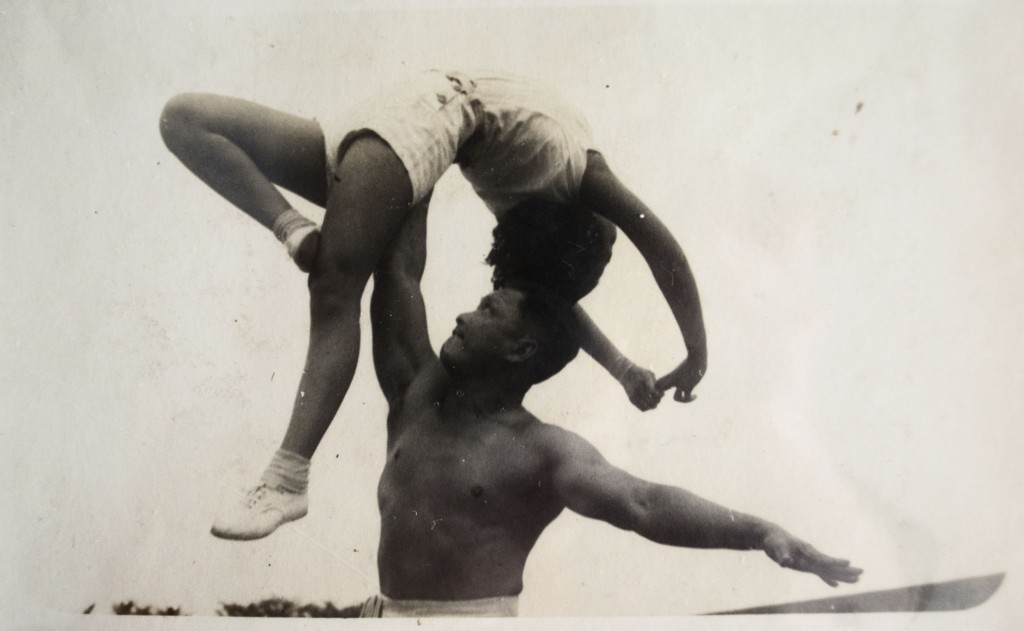
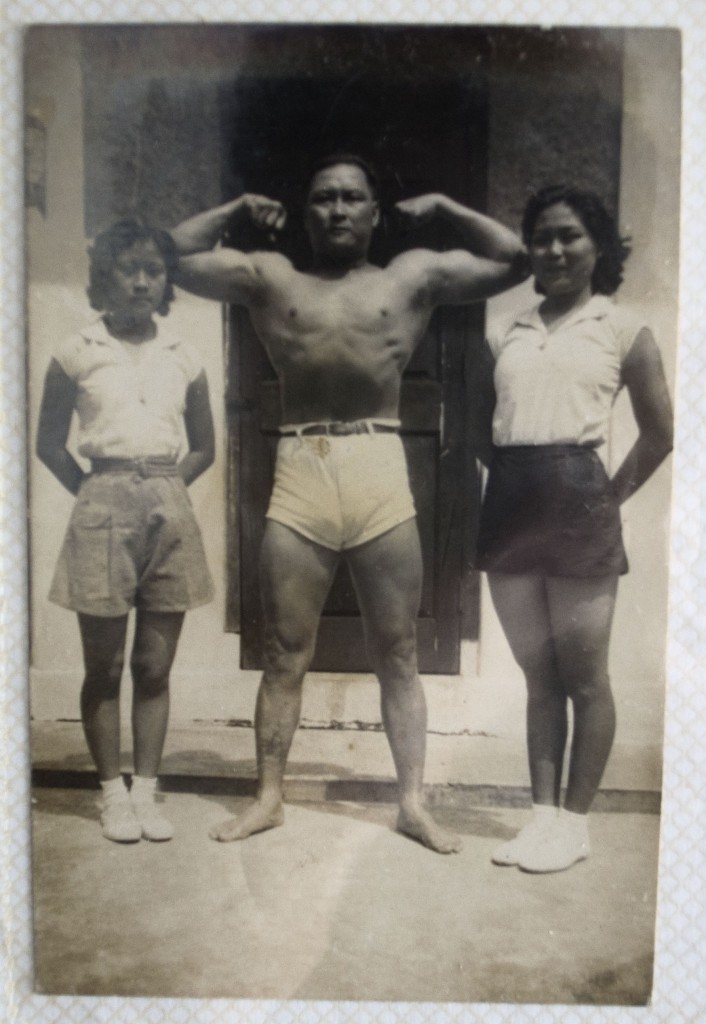
Tai Ma picked it up when she was 15, starting with 40 pounds. It was initially a struggle, and her father would motivate her with 20 cents for school recess if she could lift 50 pounds.
“We did our sessions every Tuesday, Thursday and Saturday evening. I did 80 pounds for bench press; clean and jerk, 130 pounds; snatch, also 80 pounds; dead lift, 240 pounds.”
All this sounded impressive to me, and I wondered if her weightlifting demonstration helped her to cinch the Miss Singapore title.
“I don’t know, there were a lot of things going on.”
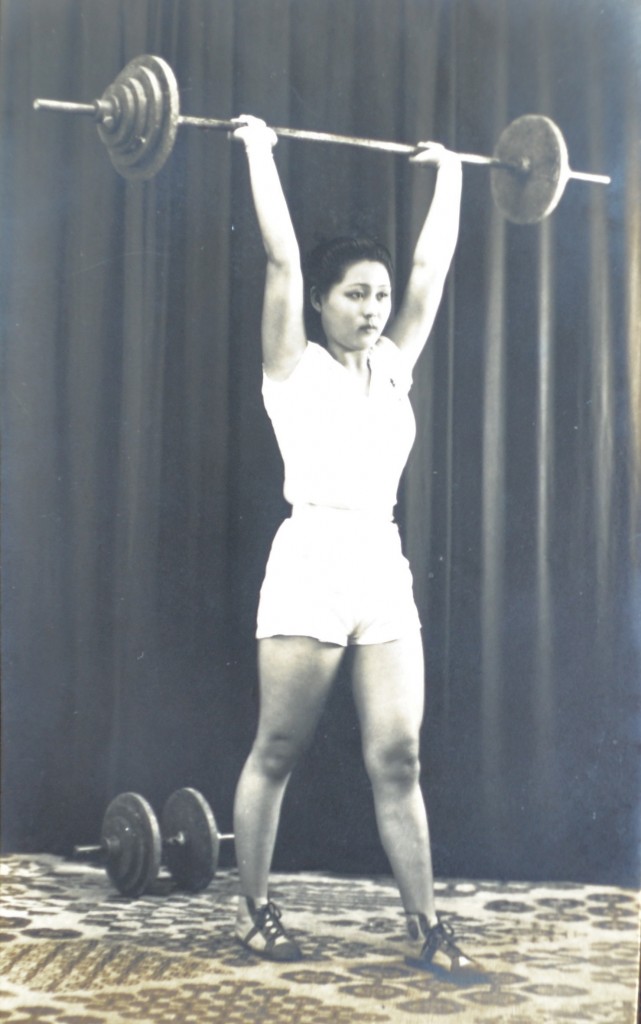
She joined the Singapore Amateur Weightlifting Association (SWLA) two years later with her sister, mostly in part due to the waiver of membership fees, but stopped during the war, quitting all social activities and staying at home altogether because she was “afraid the Japanese would see us.”
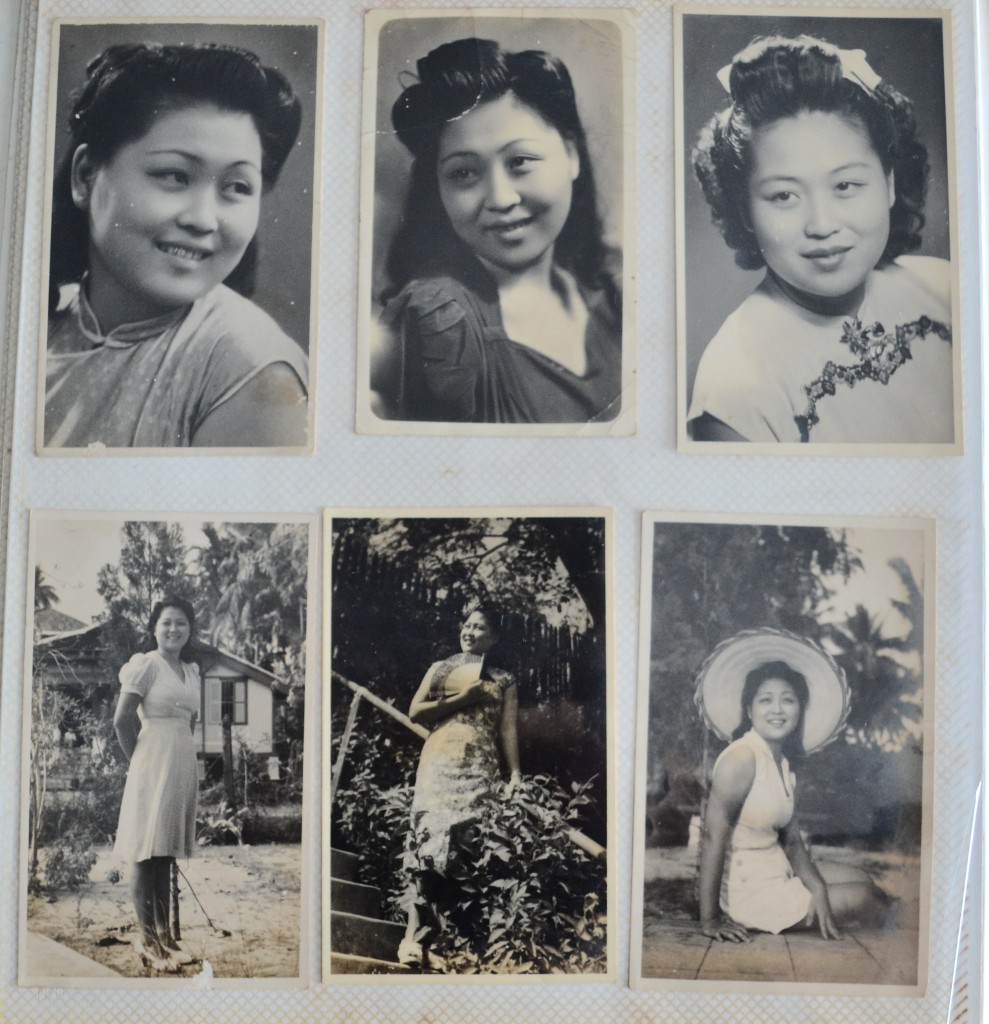
I referred to her Miss Singapore pictures. Unlike the Amazon model-esque figure so favoured by pageant judges these days, Tai Ma had a broad frame with strong shoulders and muscled legs, no doubt due to her weight lifting that subsisted on a diet of “only rice, not even one egg!”
But she was no less beautiful, with her hair curled close to her head – the ‘in’ hairstyle during that time. Presently, Tai Ma has lost most of her muscle mass and her frame is much more petite, but she is incredibly active for her age, able to walk without support and with the agility of someone decades younger. I wondered aloud if she would have joined the pageant today if she were my age.
“I don’t know. But…what good are these competitions, and what good would happen if I join?”
I felt that the question was better put to the current Miss Singapore (given my scant knowledge on the subject), and as I pondered on her answer, the moment passed.
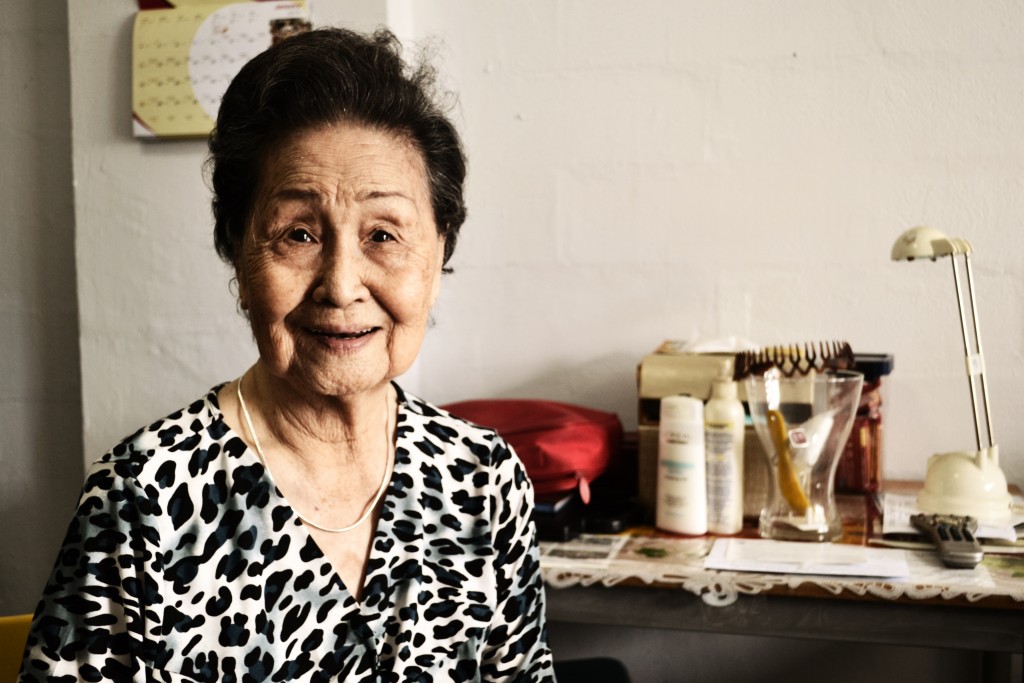
Reflecting on our conversation, I realised that the title of Miss Singapore was just a blip in her life, something she didn’t heap the same amount of regard that other people (namely, me) did on it. But I did manage to glean more into her personality and what she was like when she was younger. And it seemed that beauty pageants in the past were much simpler affairs compared to the current brouhaha and countless public events Miss Singapore candidates have to do before the actual pageant.
Tai Ma discontinued her successful run in the beauty pageant circuit after getting married and concentrated on bringing up her family. Now, she spends her days playing mahjong, catching up with friends at hawker centres and being a great-grandmother to a number of boisterous babies.
